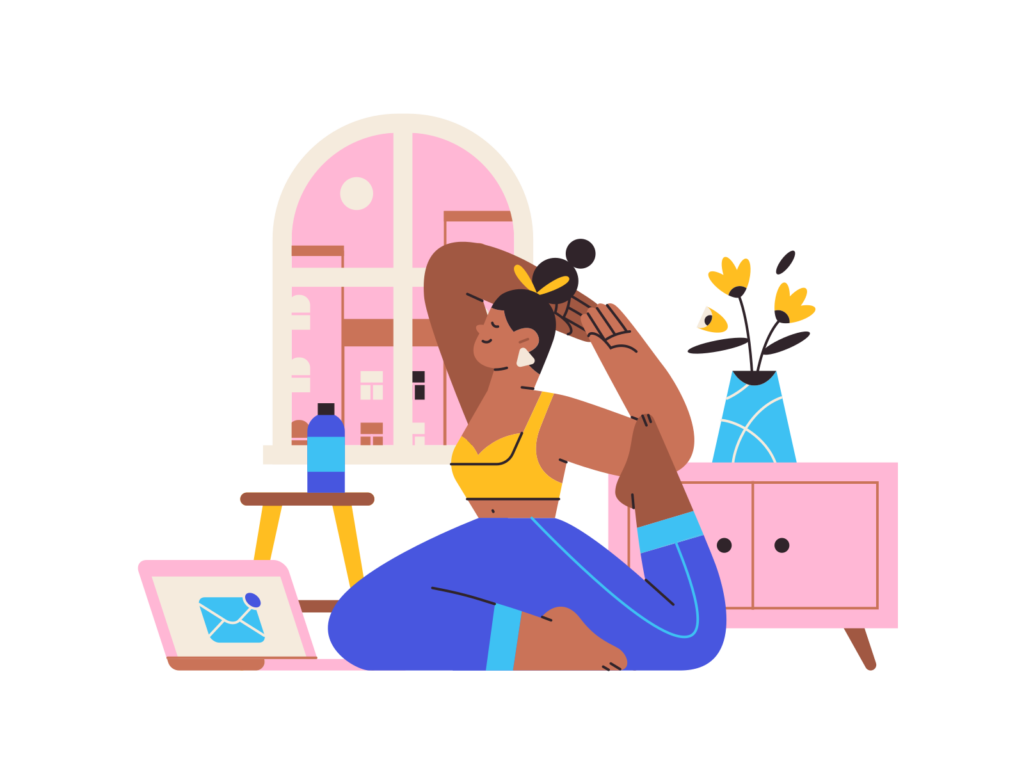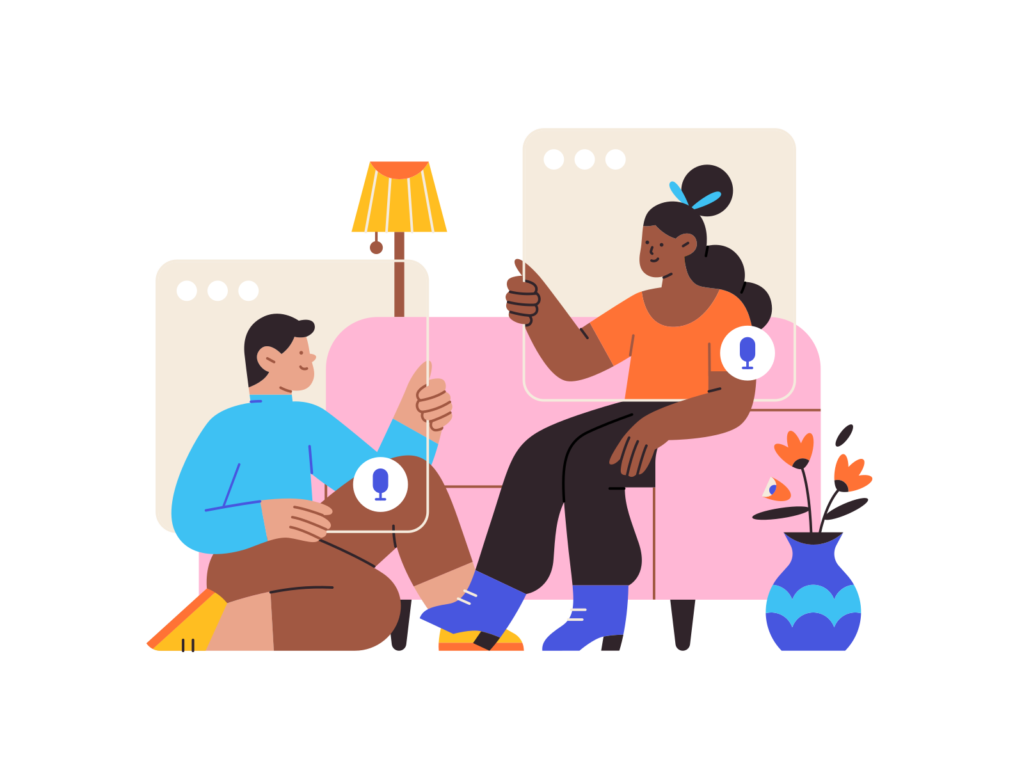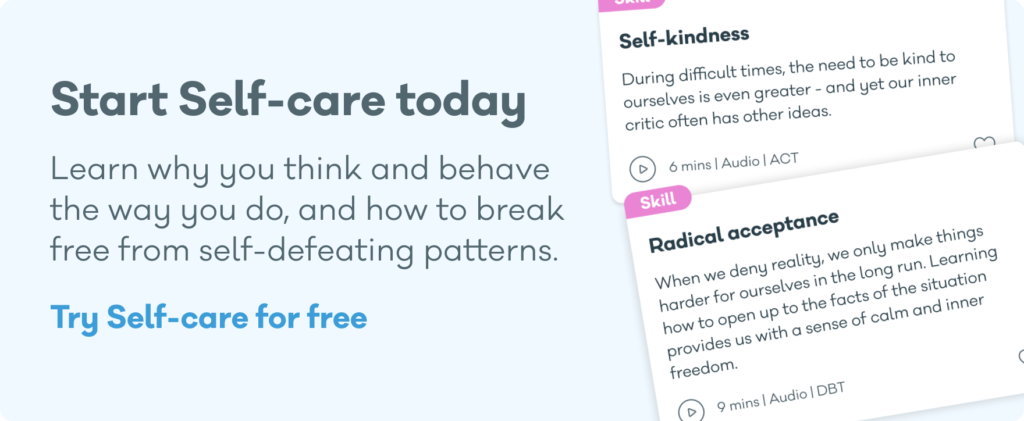Self-care is a term that’s thrown around a lot these days. It might conjure up images of soothing cups of tea, face masks and the occasional shopping spree. But, as nice as those things are, self-care is much bigger than that.
It’s the idea that life is full of ups and downs, and the best way we can equip ourselves to cope is by making a conscious effort to look after our physical, mental and emotional health.
Just imagine that you have an internal battery. Every day, you use a little bit of energy doing daily tasks, such as going to work, cleaning and sorting out your bills. You also give your energy to others. You offer a friend a shoulder to cry on, babysit for your niece or simply spend quality time with your partner.
Eventually, your energy levels deplete lower and lower — and then, out of the blue, life deals you a bad hand. A relationship fizzles out, you’re unexpectedly made redundant, or lockdown anxiety gets on top of you. It seems like you’re carrying the weight of the world on your shoulders and you start to feel burnt out.
That’s because there’s an imbalance in what we are giving out to the world and taking back for ourselves. And it all points to a lack of self-care.
Self-care is vital because it’s essentially a way to recharge our internal battery. Without it, we can feel like we’re running on empty. We become exhausted, overwhelmed and emotionally drained. And we may even start to feel resentful or taken advantage of by those around us.
So, let’s say you decide to make a conscious effort to turn things around. What sort of impact might that have?
- Self-care can improve our physical health
A big part of self-care involves looking after our bodies and becoming attuned to its needs. You might decide to go for a quick walk in the park or whip up a veggie-packed meal, for instance. Chances are these sort of tasks will make you feel content and happy, and you’ll also become fitter.
Self-care is a big stress reliever, so it can help us let go of any physical tension we may be carrying too. When we’re stressed, a surge of hormones enters our body triggering ‘fight or flight’ mode. Our heart pounds, our muscles tense, and it can take its toll on our body. Over time, even low-grade stress can lead to high blood pressure and hypertension.
Self-care activities like meditation and yoga essentially help counter the toxic effects of stress by triggering the ‘relaxation response’ — a state of peace and calm that curbs the ‘fight or flight’ response. Therefore, self-care can help us from the inside-out.
- Self-care can improve our relationships with others
How you treat yourself sets the tone for the relationships you have with others. Because if you don’t care for yourself, how will you have the energy to love and care for someone else?
Without self-care, we may even start to become irritable or resentful of our loved ones. Because we feel like we’re giving out more than we’re receiving. So, by looking after ourselves, we’re more likely to foster healthy relationships.
- Self-care can improve your mental health
Self-care techniques can be a game changer if you suffer from mental health problems. It can help you manage the symptoms of some conditions, stop them from getting worse and even prevent some problems from developing in the first place.
For instance, self-care practices like meditation might help to ground you in the present moment and reduce your anxiety.
What does self-care look like?
Let’s face it: there’s a big misconception that self-care is a luxury. Many of us may think that it’s something we do when we need a pick-me-up. Or we may even overlook it altogether because we think that it’s not for us.
Maybe we worry that we don’t have the time, energy or money to care for ourselves. But that’s a warped perception of self-care.
The reality is, it should be a priority for everyone. There are plenty of small steps you can take to replenish yourself — and you don’t have to break the bank to do it.
So, when we dig deeper, what exactly does self-care look like?

Self-care isn’t blowing a fortune on some skincare product you saw on Instagram or trying (and failing) to see a personal trainer every day.
It’s about making small, purposeful efforts to show up for yourself and treat your mind, body and soul with kindness.
Ultimately, this helps us build resilience so that when stressors come along in life, you’re better equipped to cope.
Instead of feeling overwhelmed and burnt out, you’re able to take what life throws at you and adapt. Because you have a reserve of physical, mental and emotional strength.
It should be a continuous practice too. We all have chaotic, hectic lives and sometimes it can seem like there aren’t enough hours in the day. But there’s always time for a bit of ‘me’ time.
Even if it’s just going for a stroll during your lunch break or squeezing in a phone call with a friend, these little moments of self-care matter more than you think.
Another big myth around self-care is that self-care is a selfish or self-indulgent act; that by looking after ourselves, we’re neglecting those around us. But don’t think that for a second.
If anything, self-care is a self-respectful act — and it helps those around us too. We so often put other people’s needs before our own, for instance, maybe you’re a carer or a parent. By taking time to treat ourselves with care and compassion, we’re more likely to have the energy and resilience to care for others too.
Is self-care the same as self-improvement?
Self-care has become a trendy term and, at times, it can be easy to misconstrue what it means. We might think that it’s the same as ‘self-improvement’. But there’s subtle differences.
Self-improvement often comes from a perfectionist mindset and focuses primarily on goals. We zero in on what we need to ‘fix’ about ourselves and, if left unchecked, our inner critic can get the better of us.
We tell ourselves that we’re ‘lazy’ and even when we reach the finish line we’re not truly happy because there’s always another goal on the horizon.
Self-care, on the other hand, is all about releasing pressure, turning the valve, and letting go. It may naturally lead to self-improvement, but it comes from a place of compassion and care.
Ultimately, we don’t think we’re ‘broken’ or need to be ‘fixed’. We accept ourselves just as we are right here, right now. We’re simply nurturing what we already have to work with.
Different areas of self-care
When asked the question “Do you look after yourself?” most of us will nod our heads in agreement. But if we dig a little deeper and ask ourselves how we do it? That’s when it gets a whole lot trickier.
That’s because self-care takes many forms, for example, it can be physical, social, mental and emotional, spiritual, financial and personal. Plus, it can revolve our work and home life too.
With this in mind, the first step towards self-care is often self-awareness. It’s about being mindful and identifying the activities that nourish you, and making conscious efforts to incorporate these into your daily life. The real trick is to get a blend of different types of self-care, so you can ensure that all your needs are being met.
Examples of self-care
Still feeling lost? If you haven’t put your finger on what self-care means to you, here are a few examples to get you started:

- Physical
Our minds and our bodies are deeply interconnected so we need to check-in and make sure our physical health is ticking along okay. Because when you care for your body, odds are you’ll feel and think better too.
Physical self-care includes tasks such as: exercising, eating well, getting enough sleep, taking our medication, keeping up with personal hygiene, pampering ourselves and booking a doctor’s appointment when we feel under the weather.
- Spiritual
Some people get a lot of solace from spiritual self-care. It can ground us in the present moment, nourish the soul and bring us a sense of peace. Spiritual self-care can look different for everyone. It includes activities like meditation, yoga, spending time alone, connecting with nature or visiting a sacred place.
- Financial
Financial worries are a big stressor for many of us and it can take a toll on our psychological well being. Sometimes this can be outside of our control, but there are small ways we can practice financial self-care and look after our wallets and our minds. Financial self-care can include anything from saving and money management, to identifying your triggers for splurging.
- Mental and emotional
Our thoughts and emotions can have a big impact on our psychological well being. With that in mind, it’s important to check in on your mental health, and break free of any self-defeating patterns you may have.
Mental and emotional self-care covers a wide range of tasks including: practicing self-compassion, going to therapy, journaling, learning coping techniques and practising stress management.
If this seems tough and you need a nudge in the right direction, check out Self-care, our audio and video therapy library. It’s full of real-life therapy skills to help you check in on your mental health and make meaningful changes in your life.
- Personal
If you have a clear sense of self, chances are you’ll be more resilient to whatever life throws at you. And thankfully, there are lots of small steps you can take to put this into practice. Personal self-care might involve making time for your hobbies, identifying your values, getting to know the real you and living an authentic life.
- Social
Between the 9-5 grind and daily admin, it can be easy to lose touch with friends and family. But socialisation is key to self-care. We all know that a heart-to-heart can sometimes be all we need after a long day. So be sure to schedule face-to-face time with your loved ones. Even during lockdown there are ways you can build your relationship with others, whether it’s through a phone call, a letter or an online quiz.

Social self-care includes activities like grabbing a coffee with a friend, having a phone call with your mum or joining an online community.
It might involve nurturing existing relationships too. For instance, you might want to set boundaries or create a strong support network who you can lean on.
- Work and home space
We spend so much time at home and work. So it’s little surprise that it can have a knock-on effect on our psychological well-being. This might be particularly the case during lockdown when the lines between work and home can quickly become blurred. There are small, meaningful changes we can make to nourish ourselves both at home and work though. For instance, this might involve finding a healthy, safe and stable living environment, cleaning our living space, and setting boundaries at work.
All in all, there’s no rule book when it comes to self-care. It’s a deeply personal journey. So just trust your gut, treat yourself with kindness and remember that self-care isn’t a want, it’s a fundamental human need.

